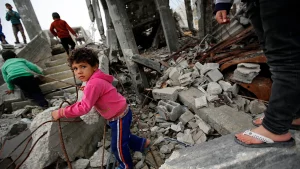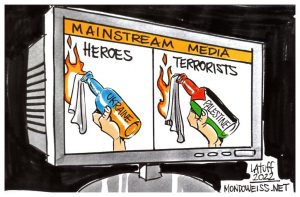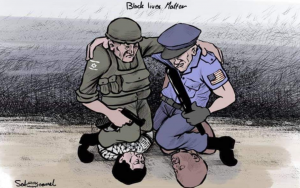
The Biden administration has upped pressure on Israel in the wake of its strike on World Central Kitchen aid staff. A warning was issued that US policy on Gaza would depend on Israel’s measures to mitigate civilian harm in the enclave, according to a readout of a call between US President Joe Biden and Israeli Prime Minister Benjamin Netanyahu.
When the White House suddenly begins to express its frustration with the Israeli Army’s actions in Gaza, as we see now, it’s “all about politics and upcoming presidential elections,” Mehmet Rakipoglu, a researcher on international affairs at Dimensions for Strategic Studies, a London-based think tank, told Sputnik.
The flurry of official statements now coming out of Washington showing concern about civilian casualties in Gaza is hypocritical, according to the pundit. From day one of the current spiral of the Palestine-Israel conflict, the US has cared precious little about civilian deaths. As it stands, the Gaza Strip’s health authorities have said that 32,916 Palestinians have been killed since the hostilities began.
But “politics” has prompted Washington to speak up in the wake of the Israeli strike on aid workers from the World Central Kitchen organization, Mehmet Rakipoglu noted.
“I think it is all about politics. What I mean by that is that there are going to be elections in the US in November and now the American government and Biden administration are concerned about losing the elections to Trump. Most probably, he will win the elections because of the Muslim Democrats and their votes. They will not vote for Biden. They will boycott the elections. This is the reason why the Biden administration is now trying to criticize Netanyahu,” the analyst stated.
US President Joe Biden told Israeli Prime Minister Benjamin Netanyahu on Thursday that strikes on humanitarian workers and the overall humanitarian situation in the Gaza Strip were “unacceptable.”
“President Biden […] made clear the need for Israel to announce and implement a series of specific, concrete, and measurable steps to address civilian harm, humanitarian suffering, and the safety of aid workers. He made clear that US policy with respect to Gaza will be determined by our assessment of Israel’s immediate action on these steps,” the readout of the call that happened in the wake of the Israeli strike said.
WCK staff were traveling “in a deconflicted zone” in two armored cars branded with the organization’s logo as well as a soft skin vehicle when their humanitarian convoy was attacked. They had just unloaded more than 100 tons of food aid brought to Gaza by sea at the Deir al-Balah warehouse. The organization said that its convoy had coordinated its movements with the IDF. The Israeli strike killed seven employees from Australia, Poland, the United Kingdom, and Palestine, as well as a dual citizen of the United States and Canada.
After the strike, Israeli Prime Minister Benjamin Netanyahu said Israeli troops had “unintentionally harmed non-combatants” in Gaza, adding that “this happens in war.”

The US State Department called the incident unacceptable and said that the IDF must impose measures to rule out a repeat of such an incident. Israel’s strike on WCK aid workers in the Gaza Strip must mark its last civilian casualty incident, US Secretary of State Antony Blinken said on Thursday.
White House National Security Communications Advisor John Kirby said the US was unaware whether American-supplied weapons were used in the Israeli strike. For all the tough rhetoric, Mehmet Rakipoglu did not predict any “radical changes in Washington policies towards Israel.”
“Why I am saying that is because it’s not new for us to see that Israel is violating international law,” he pointed out. At the same time, he added, Washington “knows how to be silent. In rhetoric, the US is the most important country concerning international law, civilian casualties, not targeting civilians, but it’s obvious that it’s not the case when it comes to the implementation.”
Under mounting pressure on the home front, in shift a from its three previous vetoes, the US abstained from a UN Security Council vote on a resolution calling for a ceasefire in Gaza on March 25. The move was seen as feeding into a growing chasm between US President Joe Biden and Israeli Prime Minister Benjamin Netanyahu.

US-Israel Rift Widens Amid Tense Back-and-Forth Over Gaza War























By Svetlana Ekimenko
Published by Sputnik Globe
Republished by The 21st Century
The views expressed in this article are solely those of the author and do not necessarily reflect the opinions of 21cir.com


